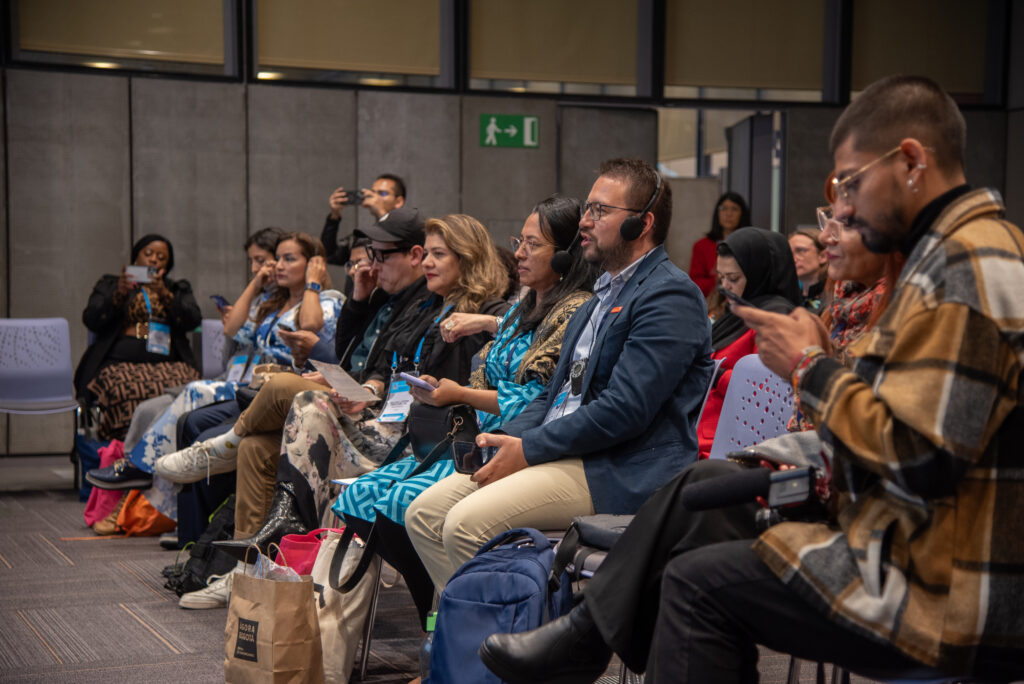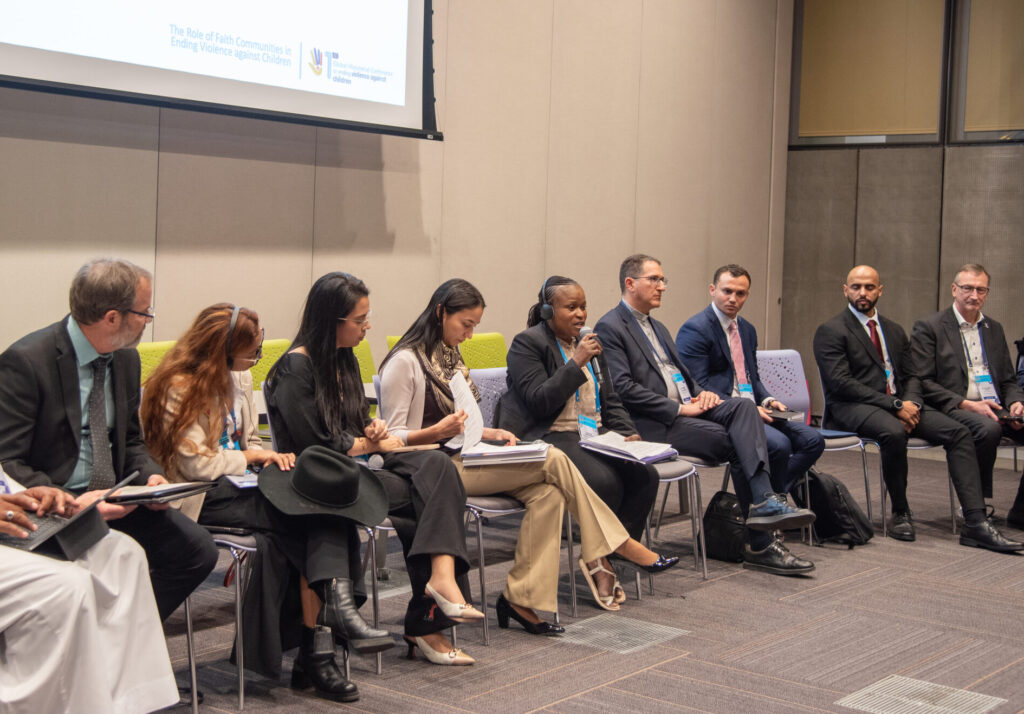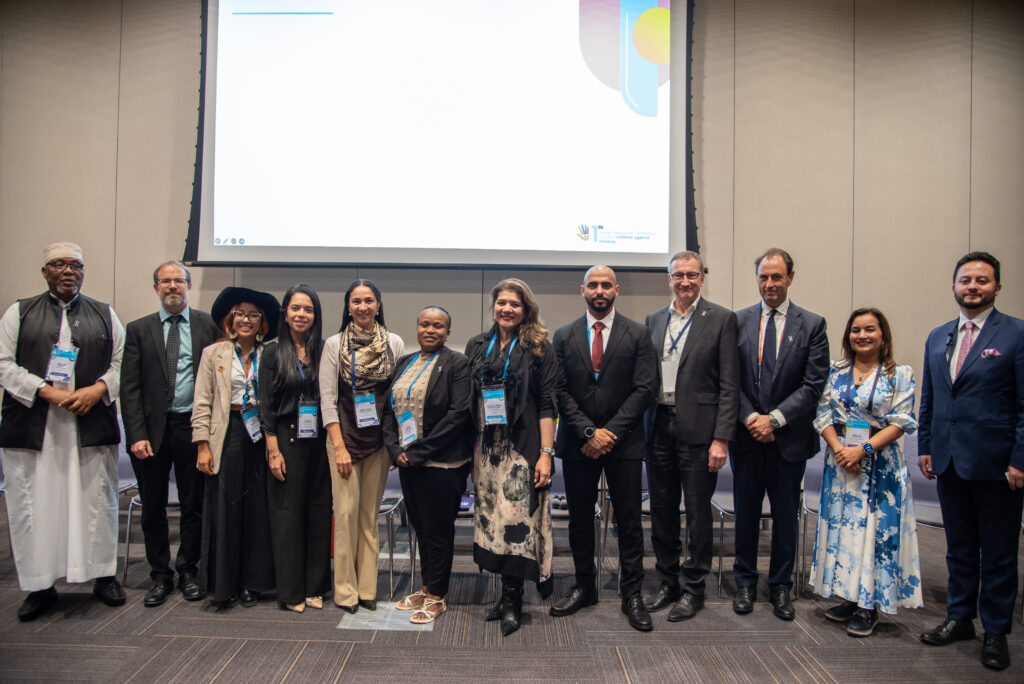
A significant step forward in the global efforts to end violence against children was taken at the Global Ministerial Conference on Ending Violence Against Children held in Bogota, Colombia from 7-8 November 2024.
During the meeting, Arigatou International held a side event on The Role of Religious Leaders in Ending Violence Against Children, hosted in collaboration with the Interfaith Alliance for Safer Communities, United Nations Office on Violence against Children, World Council of Churches, and World Vision International.
This timely gathering brought together more than 60 participants including religious leaders, government representatives, civil society actors, and children to highlight the critical role faith communities play in child protection. Moderated by Ms. Maria Lucia Uribe, Executive Director of Arigatou International Geneva, the discussions resonated with a shared commitment to fostering collaboration and action.
Keynote speaker Sheikh Ibrahim Lethome, Secretary General of the Centre for Sustainable Conflict Resolution, and Legal Advisor of the Supreme Council of Kenya Muslims, brought attention to harmful practices sustained under the guise of religion. He pointed out that cultural and religious norms sometimes perpetuate violence against children, despite existing laws. His call for faith leaders to challenge such practices resonated deeply. Faith leaders, he argued, are uniquely positioned to reconcile faith with child protection.

Voices from diverse regions and faith traditions shared powerful insights, and government officials from Colombia, Pakistan, the United Arab Emirates, and Zambia underscored the unique influence and reach of faith communities in addressing systemic issues. Their trust, values, and leadership within communities place them in a pivotal position to advocate for and protect children.
H.E. Msgr. Luis Manuel Ali Herrera of the Pontifical Commission for the Protection of Minors shared good practices from the Catholic Church, emphasizing the importance of global accountability in safeguarding children, and stressing the need for standardized measures to protect children.
Building on this, Ms. Ornella Barros, Program Officer at Arigatou introduced the Toolkit Nurturing the Spiritual Development of Children in the Early Years, developed by the Consortium on Nurturing Values and Spirituality in Early Childhood for the Prevention of Violence. This resource focuses on equipping faith actors to protect children from violence in early childhood by supporting parents, caregivers, educators and communities to nurture children’s spiritual development. She shared how the Toolkit has been successfully implemented in Mexico, Brazil, Pakistan, and India.
The discussion also featured success stories from around the world. Ms. Sarah Ahmad, Member of the Provincial Assembly, and Chairperson of the Child Protection and Welfare Bureau, Punjab, shared how collaboration with religious leaders has led to impactful results in the past, like the reduction of polio cases. She also shared how they are promoting positive parenting across 900 mosques and shrines in Punjab, Pakistan.
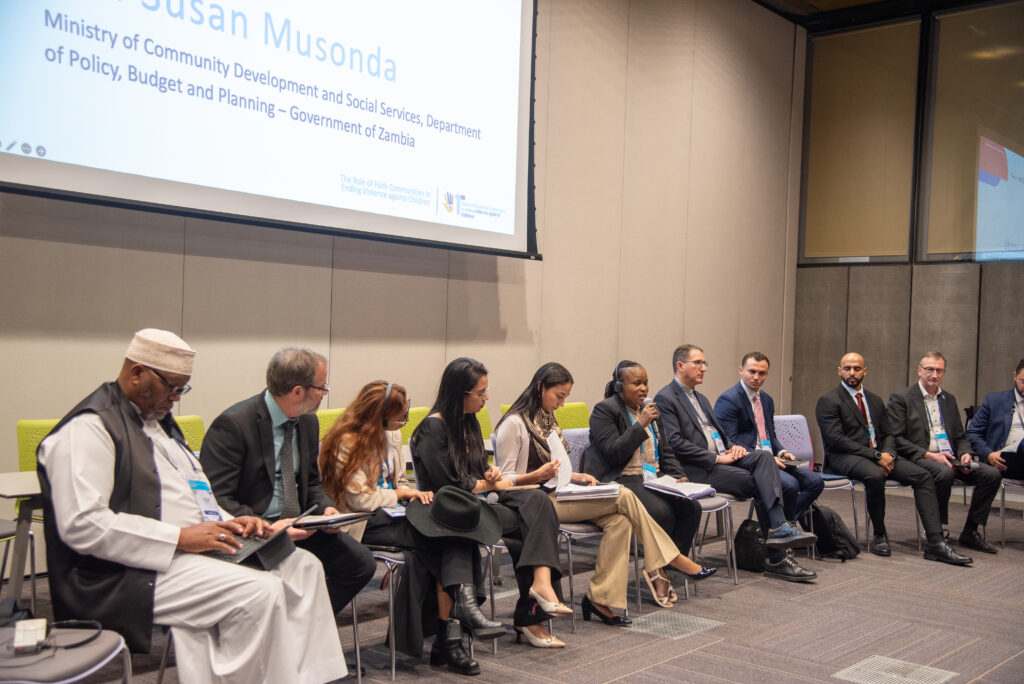
Ms. Susan Musonda, from the Ministry of Community Development and Social Services of the Government of Zambia, highlighted how intergenerational dialogues and the involvement of traditional leaders have driven meaningful change, noting that “When faith leaders speak, people tend to listen.” Similarly, Lt. Col. Abdulrahman AlTamimi, Deputy Director General of the International Affairs Bureau at the UAE Ministry of Interior, emphasized the trust people place in religious leaders. He explained that this trust often positions them as first responders, offering not only spiritual support but also moral, emotional, and material assistance.
Salome, a child representative from Colombia, provided a moving perspective on the normalization of violence against children within cultural and religious contexts. “Many beliefs normalize certain types of violence against children,” she said, calling for laws, education, and collaboration with religious leaders to create safe spaces for children and effective support channels.
Mr. Bill Forbes, Global Director of Child Protection and Participation from World Vision shared insights from a five-year research project, highlighting the profound impact of faith communities in ending violence against children. He talked about “Channels of Hope” a program to empower faith leaders through dialogue and reflection. Echoing this, Mr. Peter Prove, Director of the Commission of the Churches on International Affairs of the World Council of Churches (WCC), showcased the success of collaborative church initiatives addressing violence in all its forms. According to Prove, “The structural violence against children represented by inaction to prevent the climate catastrophe is an aspect that the WCC is emphasizing, along with the close nexus between its peacebuilding work and the protection of children from violence, including the situation of children recruited by armed groups.”
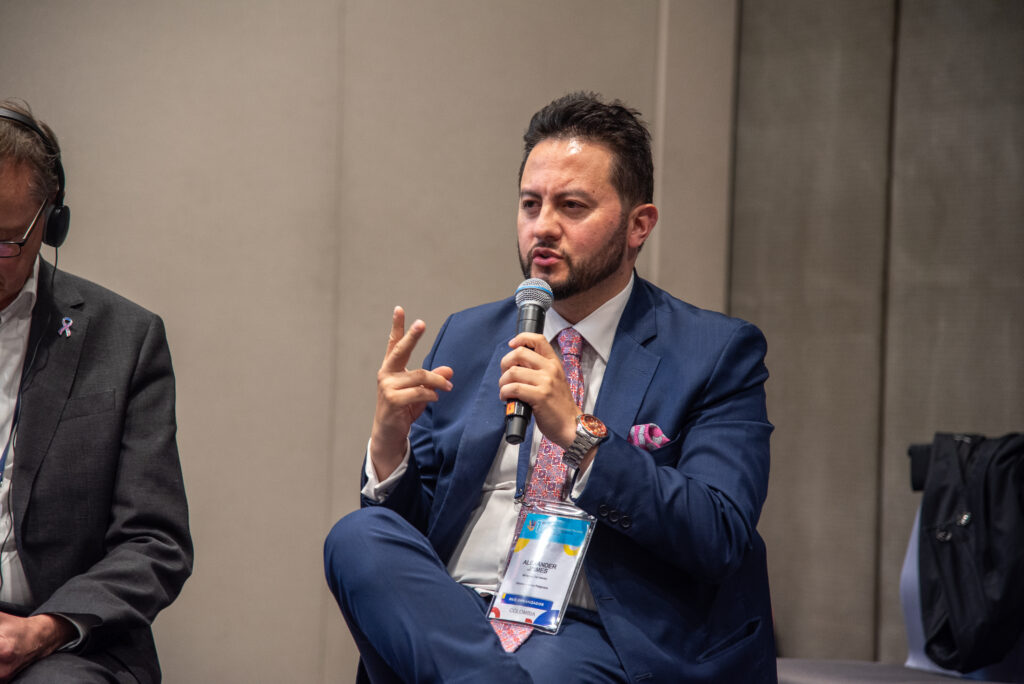
The event also spotlighted innovative policy-level work in Colombia. Dr. Alexander Jaimes, Director, Office of Religious Affairs, Ministry of Interior of Colombia, described how faith communities became pivotal during the pandemic, helping to prevent child abuse and suicide while fostering social cohesion. Religious leaders in the country have also been instrumental in sharing best practices, providing expertise, and extending protection to areas beyond the government’s reach.
As the discussions drew to a close, Dr. Lorena Rios, Colombian Senator and Coordinator of the Commission for Childhood and Adolescence, Congress of Colombia, emphasized the importance of including children’s voices in decision-making. “Listening to children’s voices is mandatory. Any activity or policy that comes from a State or a civil society organization must include their protagonists, and in this case, the protagonists are children,” she affirmed.
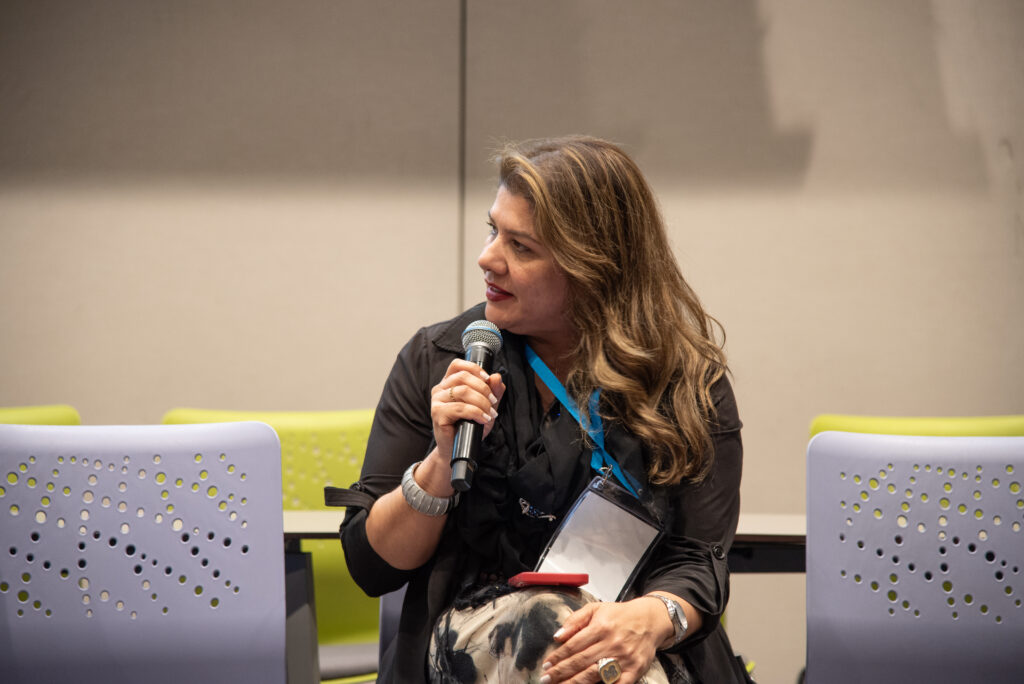
Mr. Pablo Espiniella, Senior Special Assistant and Chief of Staff at the United Nations Office of the Special Representative of the Secretary-General on Violence Against Children, delivered the closing remarks. He highlighted the renewed Pathfinding Initiative (Pathfinding 2.0), launched during the conference, and emphasized its goal of prioritizing child protection on government agendas through a cross-sectoral, bottom-up approach. Mr. Espiniella underscored the vital role of faith communities in supporting and advancing this initiative.
The event concluded with a call to action, emphasizing the need to scale up successful practices in a cost-effective manner and enhance coordination among faith actors, civil society, and governments.
Key recommendations included strengthening the capacity of religious leaders to effectively protect children, leveraging the influence of faith communities to address the needs of the most vulnerable children—such as those on the move, children living on the streets, and others—and building evidence on the role and effectiveness of faith communities in ending violence against children. Additionally, participants called for creating spaces to showcase and promote successful collaborations between governments, religious communities, and faith-based organizations. They also recommended formalizing the services provided by religious communities as part of national child protection systems.
We extend our gratitude to the organizers of the Ministerial Meeting for creating a platform to address these critical issues. We also thank our partners and panelists for generously sharing their time and expertise, and contributing to the global movement to end violence against children.
